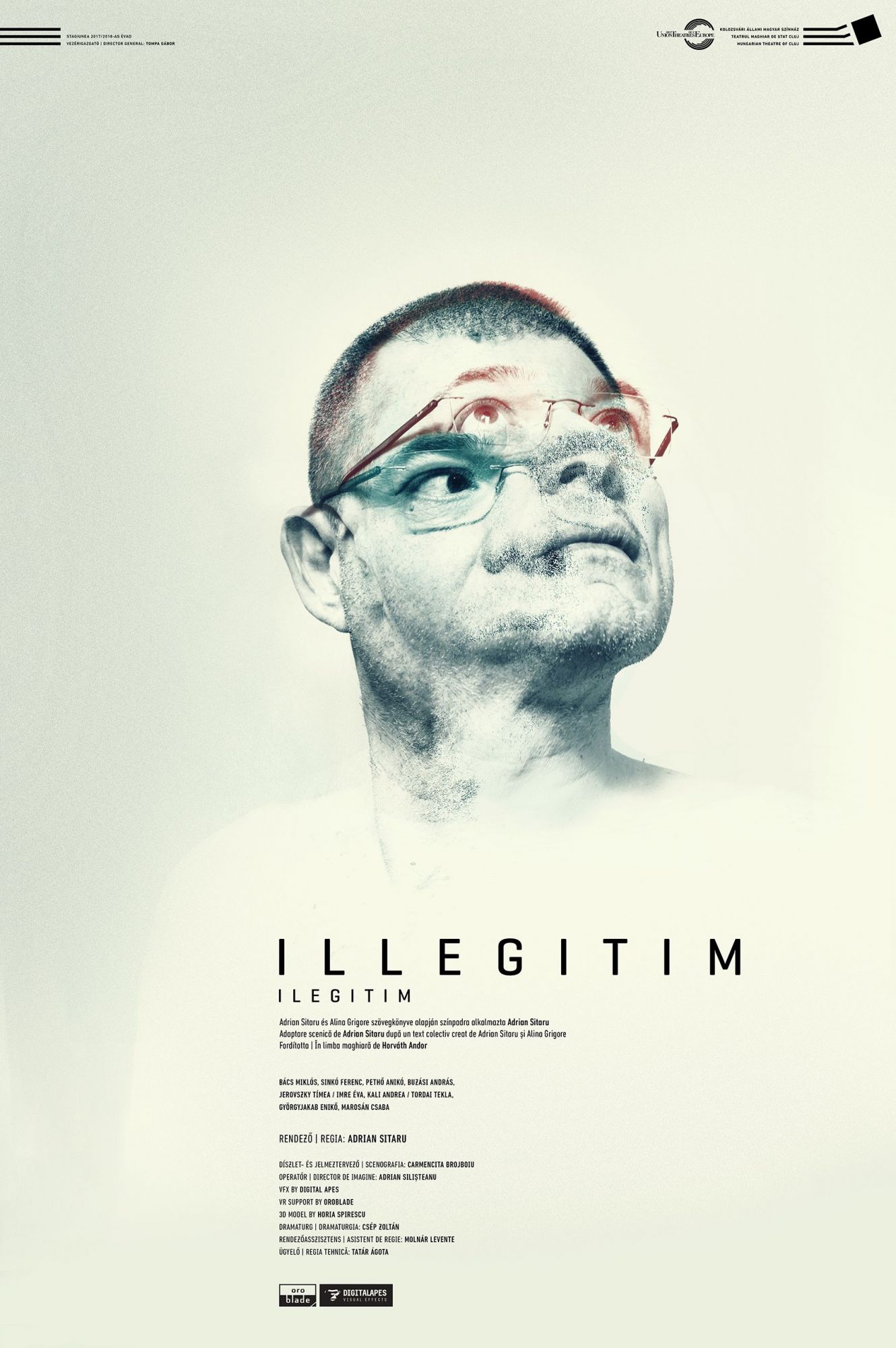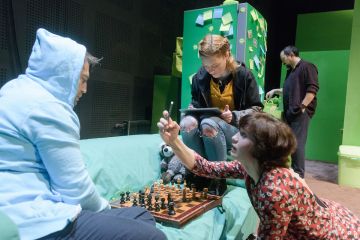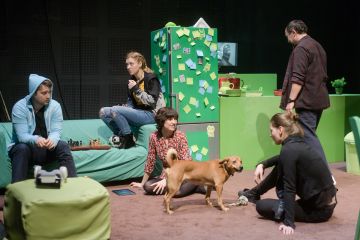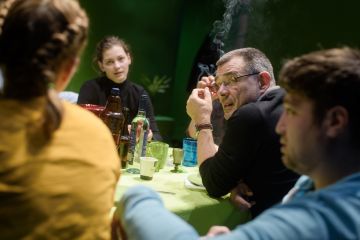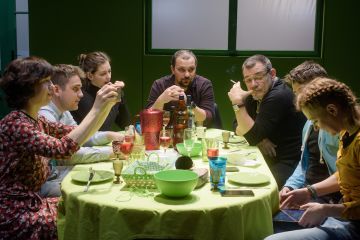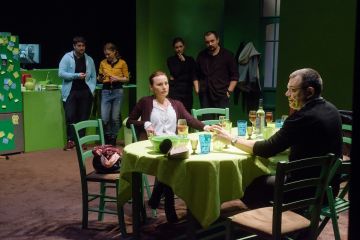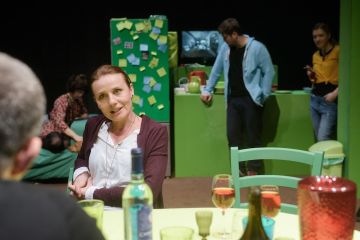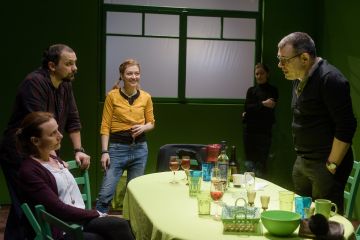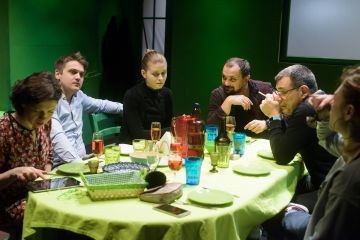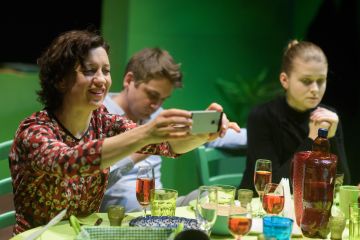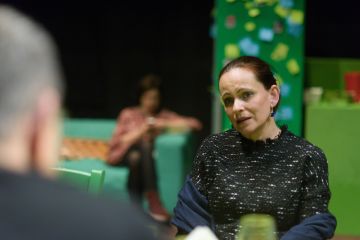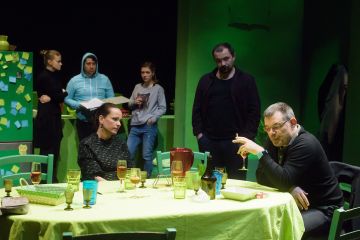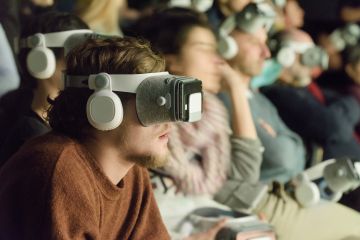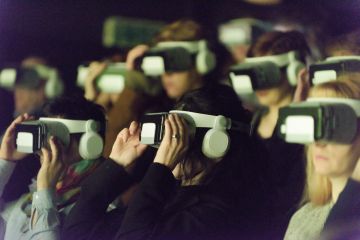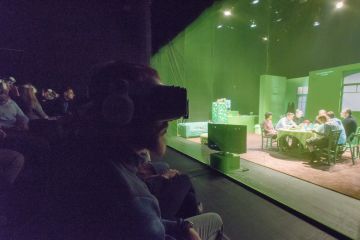Illegitimate
Stage adaptation by Adrian Sitaru, based on an original text by Adrian Sitaru and Alina Grigore
Hungarian translation by Andor Horváth
Studio
RO

EN

1h 30' without intermission
Viktor
Miklós Bács
Dávid
Ferenc Sinkó
Szása
Anikó Pethő
Rómeó
András Buzási
Hilda
Tímea Jerovszky / Éva Imre
Mária
Andrea Kali / Tekla Tordai
Julie
Enikő Györgyjakab
Bogdan
Csaba Marosán
directed by
Adrian Sitaru set and costume design
Carmencita Brojboiu director of photography
Adrian Silișteanu dramaturg
Zoltán Csép director's assistant
Levente Molnár 3D model
Horia Spirescu VFX
Digital Apes VR support
OroBlade stage manager
Pál Böjthe
Miklós Bács
Ferenc Sinkó
Anikó Pethő
András Buzási
Tímea Jerovszky / Éva Imre
Andrea Kali / Tekla Tordai
Enikő Györgyjakab
Csaba Marosán
directed by
Adrian Sitaru
Carmencita Brojboiu
Adrian Silișteanu
Zoltán Csép
Levente Molnár
Horia Spirescu
Digital Apes
OroBlade
Pál Böjthe
Date of the opening: february 17, 2018
A disintegrated, confused family, lacking the presence of a mother, where each person struggles with their own prejudices and is right in their own way. It is a miniature image of the world we live in, of our blindness, and inevitable ignorance, due to the way we perceive things differently and in a deformed way, may we be ordinary people, or philosophers. We go through life wearing invisible goggles, blinkers or colored glasses, we only see what we want and it becomes convenient for us to only notice what we have learnt to see. We are turning around and around, in a circle, repetitively, and live parallel realities in our minds. Might we perchance have the opportunity to rise above? Perhaps unconditional love is the missing piece, as perhaps the lack of the mother is also very present within this family.
Adrian Sitaru









